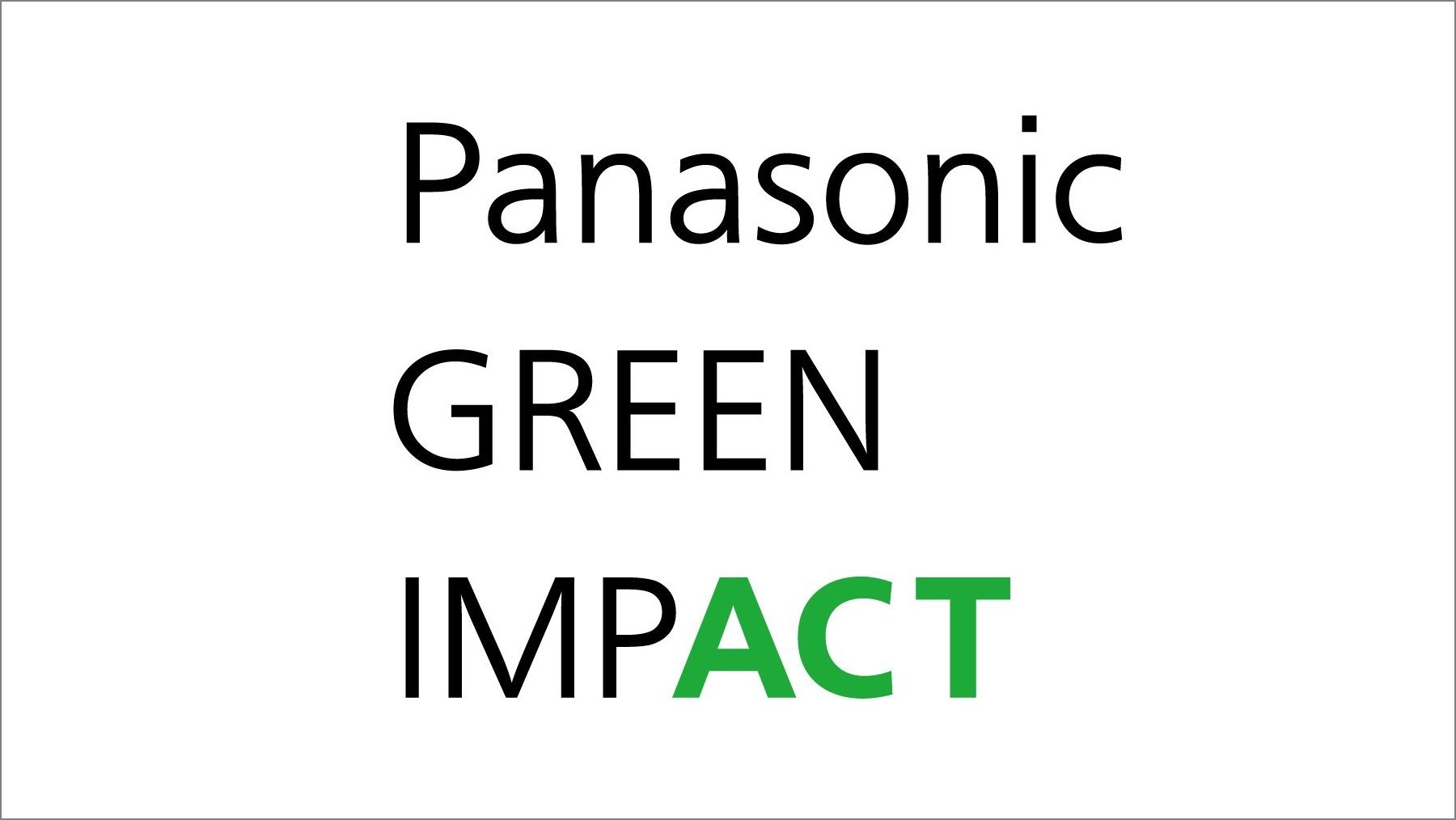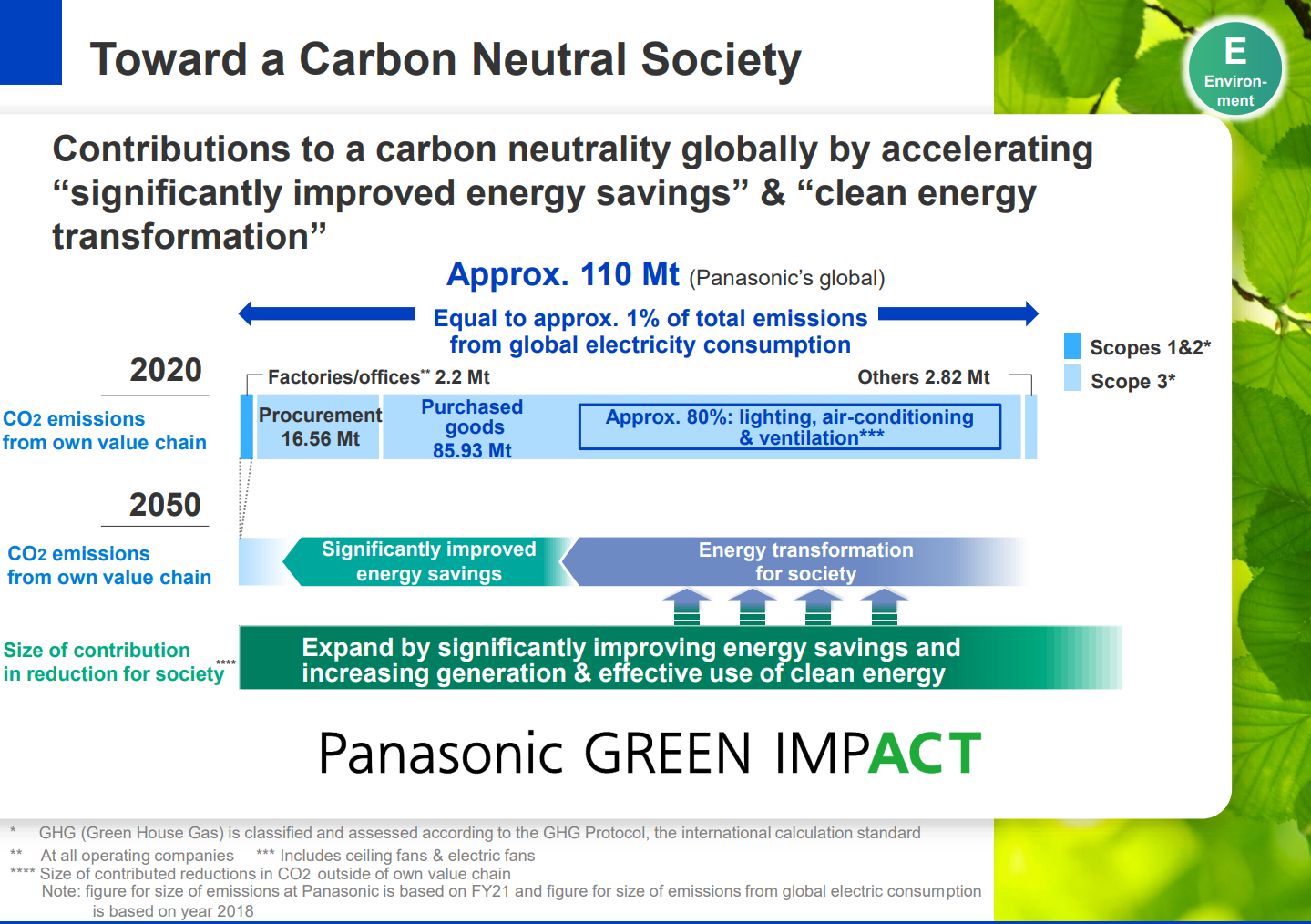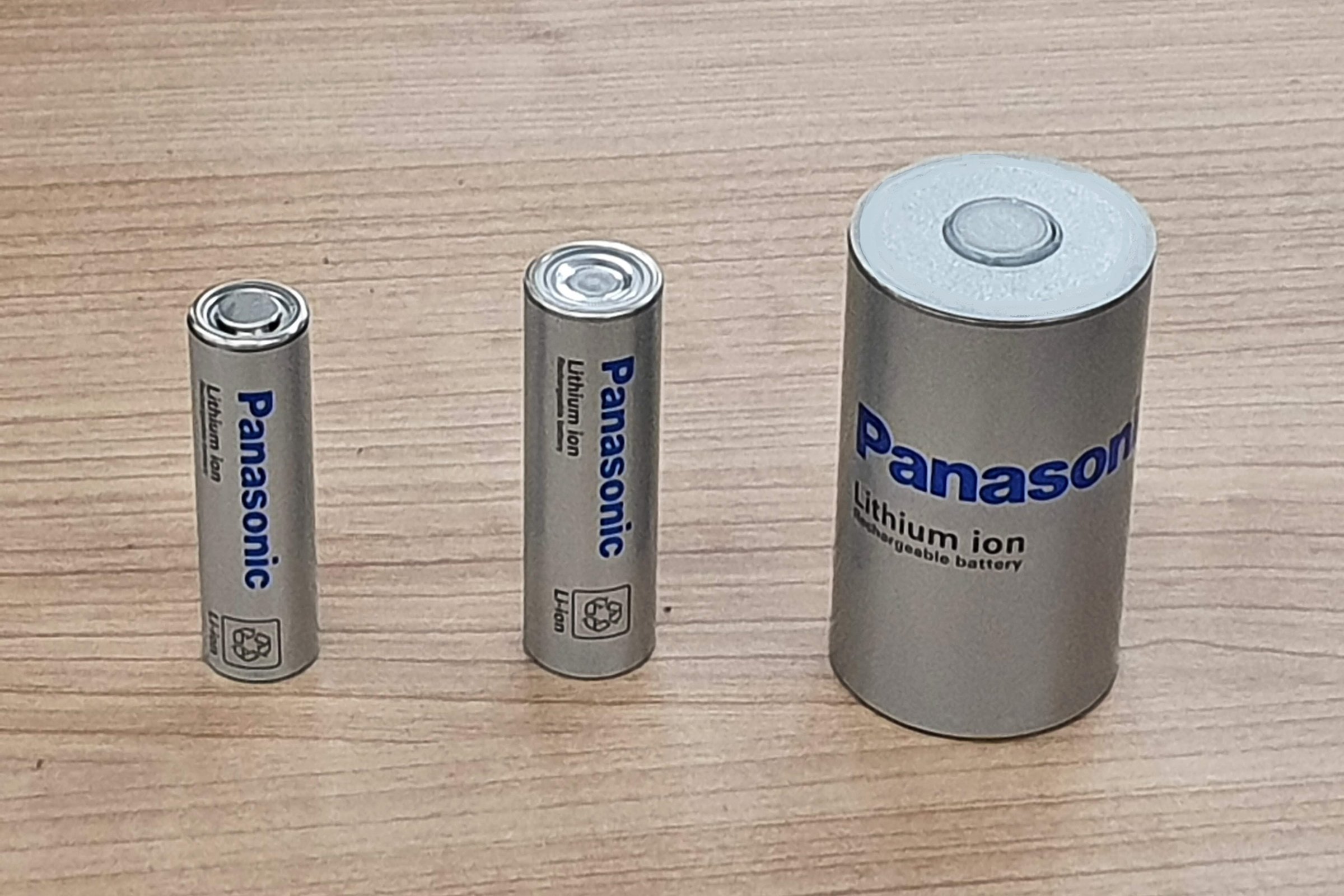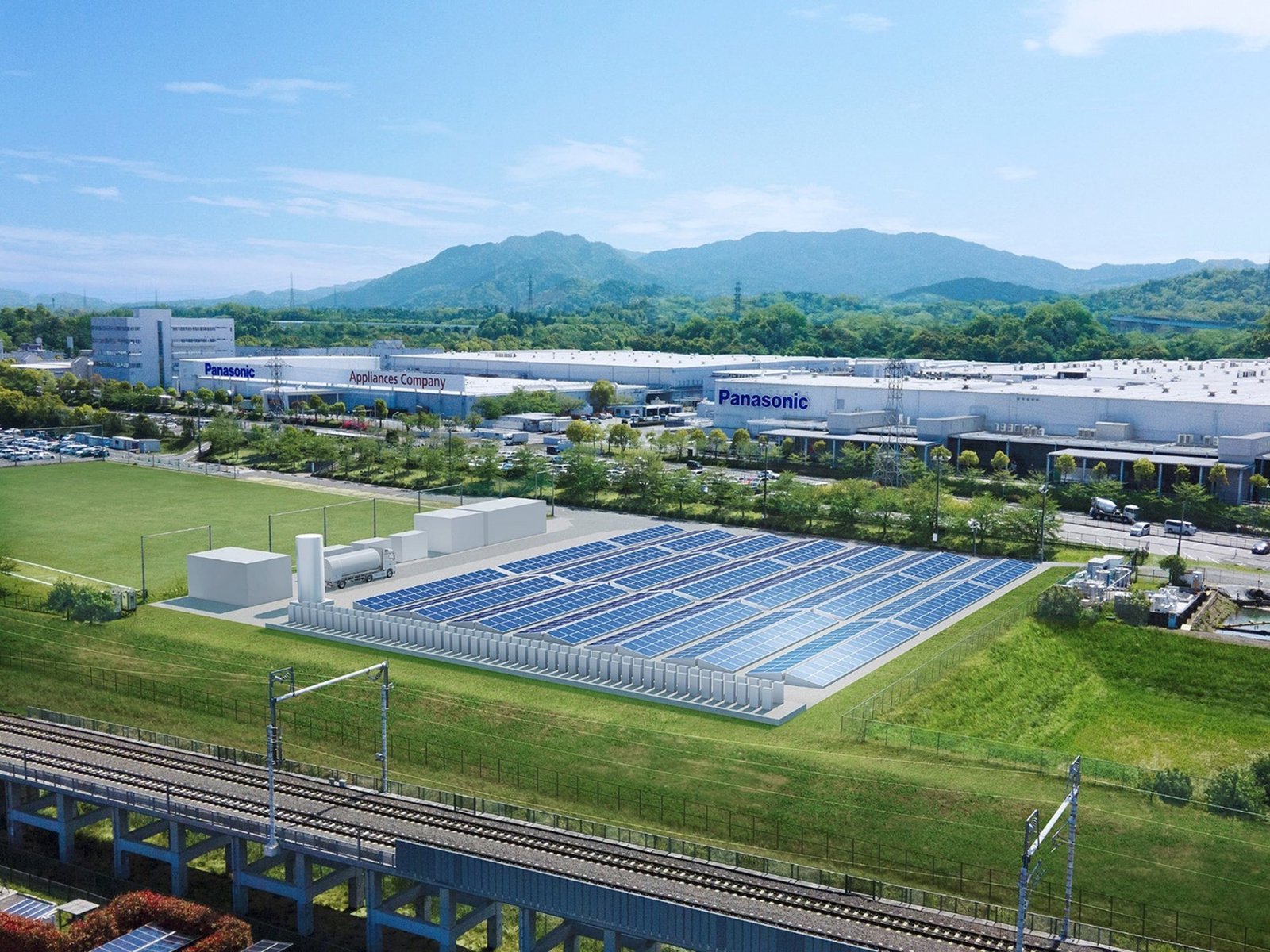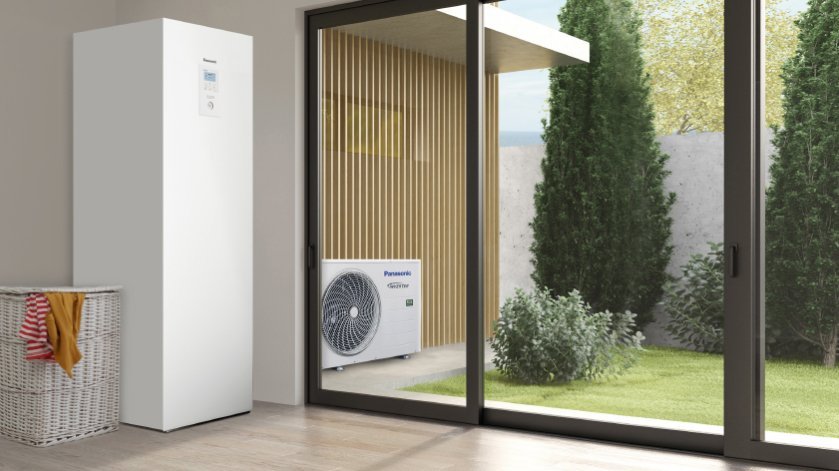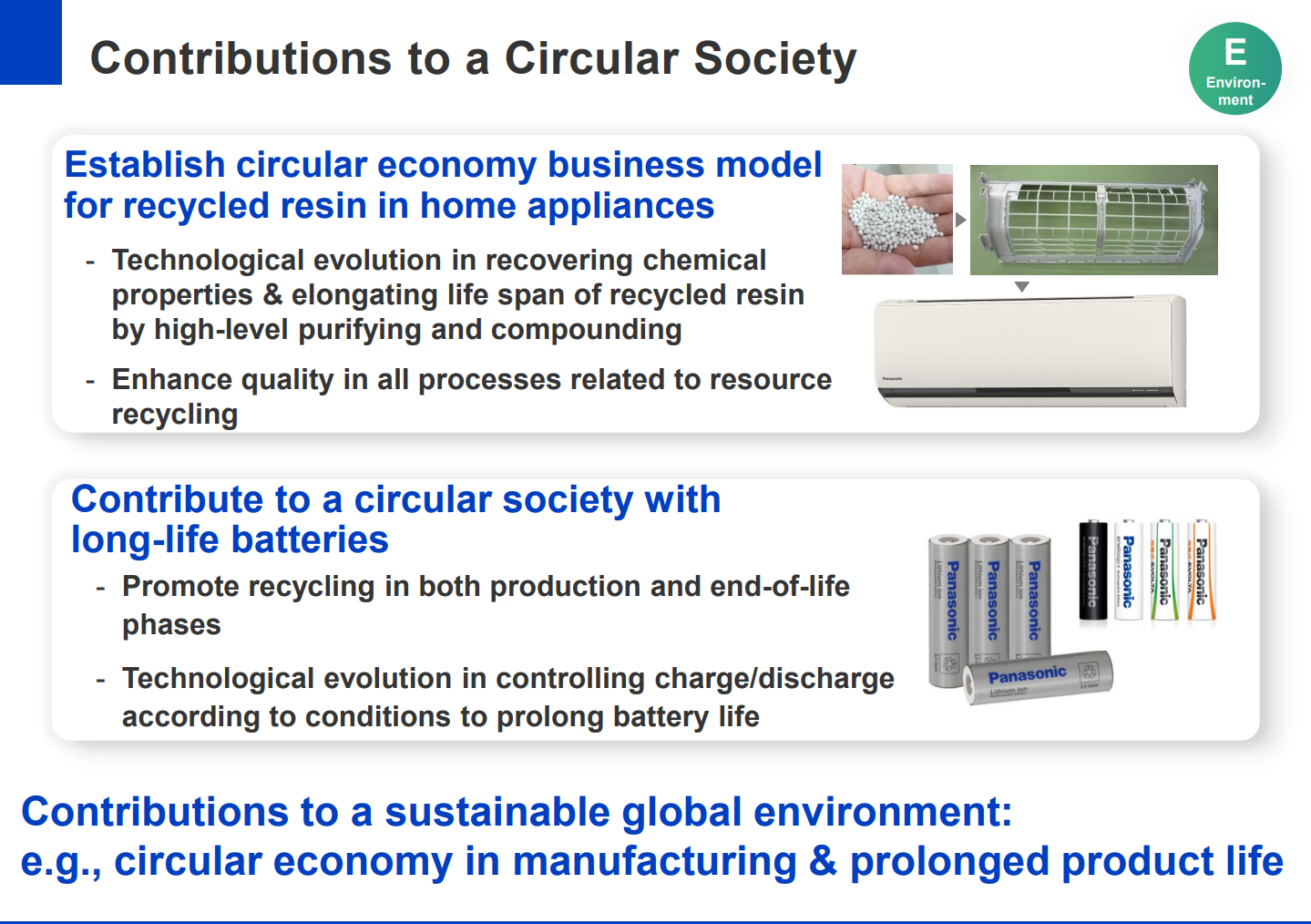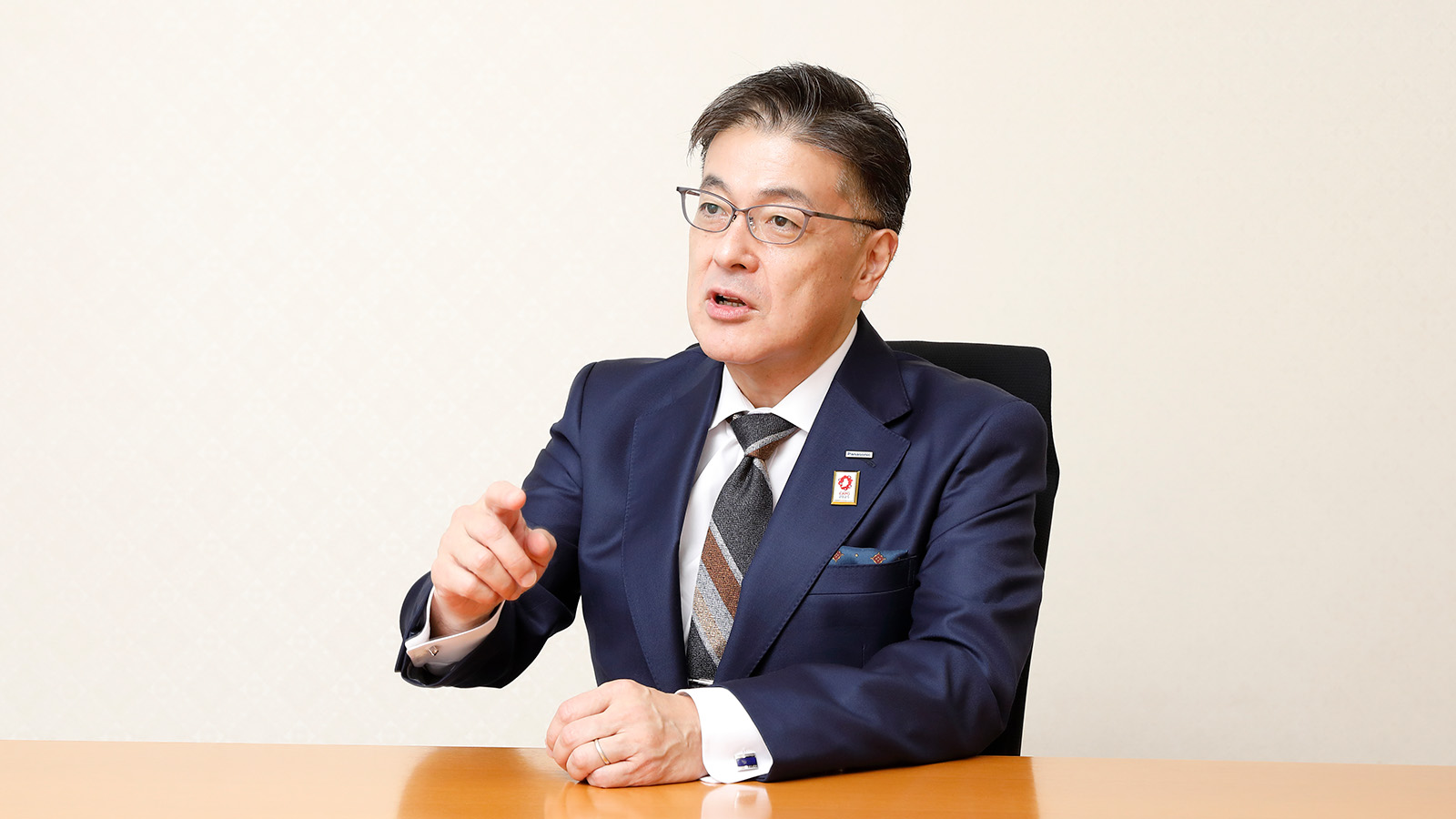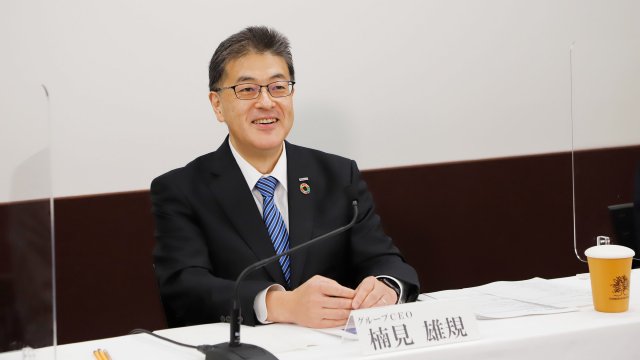
In advance of CES 2022, held January 5-7, 2022, Panasonic held an online press conference on January 4 in which CEO Kusumi announced a new environmental concept called "Panasonic GREEN IMPACT". At the January 6 session on sustainability management, he said, "we will confront today's issues head-on to make sure we don't pass society's ills on to future generations" and "global environmental issues must be our top priority", sharing his thoughts on actions Panasonic Corporation can and must take to "lead the call for reductions in CO2 emissions across the many areas our company is engaged, creating an impact that accelerates a society-wide energy revolution."
Toward Sustainability Management: The Passion Behind "Panasonic GREEN IMPACT"
Panasonic Corporation has made a commitment to achieving net zero CO2 emissions at all its operating companies by 2030 as a milestone to realizing the "Panasonic Environmental Vision 2050" formulated in 2017. Looking to 2050, the company also shared its goals for contributing to society-wide reductions in CO2 emissions by switching customers to energy-saving products and supplying energy-saving solutions and green energy technologies to B2B/B2G customers. The latest announcement gave more specifics on the direction of those initiatives.
Currently, Panasonic emits 2.2 million tons of CO2 (per year; figures below all annual) primarily through factory operations. And around the world, it is estimated that the more than 1 billion customers using Panasonic products every day create 86 million tons of CO2 emissions based on electricity consumption figures. This amounts to approximately 110 million tons of CO2 emissions across our entire value chain, a number that is equivalent to about 1% of total emissions from global electricity consumption. Thus, it is Panasonic's duty to reduce these emissions as they have an enormous impact on our planet.
In addition to "comprehensive energy reductions" at all company operations, Panasonic will promote reductions in CO2 emissions across various areas to realize a "global energy revolution," for an even greater, positive impact. The choice of the phrase "Panasonic GREEN IMPACT" shows Panasonic's commitment to ACT to achieve a sustainable future.
Here are some specific GREEN IMPACT initiatives, including those exhibited at CES 2022.
Generating Solutions for Wide-Ranging Environmental Problems
Contributing to a "Global Energy Revolution"
In countries around the world, we are now seeing efforts to accelerate the switch to renewable energy in grid power. This has given rise to a movement, including among individual energy consumers, for promoting "electrification" - the process of replacing equipment that burns fossil fuels with electrical equipment - spurring Panasonic Corporation to seize the opportunity to advance its efforts in a range of areas.
Lithium-Ion Batteries for Electric Vehicles
Critical to the achievement of a carbon neutral society is the popularization of environmentally friendly vehicles. Panasonic is leveraging its battery technology and production know-how cultivated over many years to strengthen its competitiveness (on battery capacity, cost and supply capability) in the development and mass production of lithium-ion battery packs for electric vehicles (EV). Take, for example, the cylindrical, high-capacity 4680 cell set to become the mainstream: while continuing to improve the strengths of its batteries, which include high quality and high safety, Panasonic aims to lead the industry on cost competitiveness through consistent productivity advancements.
Strengthened competitiveness is extremely important to the evolution and spread of electric vehicles. Combined with advancements on the below-mentioned initiatives for reuse and recycling, we will make exhaustive efforts at reducing environmental burden.
RE100 Solutions
RE100 Solutions is Panasonic's initiative to power energy consumption across its entire operations with 100% renewable energy generated in-house utilizing combined technologies of pure hydrogen fuel cells, solar cells, and storage batteries. A proof-of-concept will start in April 2022 at the fuel cell factory in Kusatsu, Shiga Prefecture. Panasonic will cultivate new paths for the expansion of renewables through the full-scale application of hydrogen.
Image of the completed RE100 Solutions demonstration facility at the Smart Energy Systems Division Factory in Kusatsu, Shiga Prefecture.
"Aquarea" Heat Pump Hot Water Heater
The Panasonic Aquarea hot water heater with built-in heat pump now available on the European market transfers heat captured by a heat pump from ambient air to make hot water with minimal power and with much lower CO2 emissions than conventional heaters powered by fossil fuels. In addition to increased use of power from renewable sources, electrification enables an energy time shift by storing sometimes unreliable renewable power as hot water, thereby limiting the burden on the power grid and contributing to the faster spread of renewables.
Contributing to a Circular Society
Also critical to resolving the Earth's environmental issues are efforts to create a circular society. Panasonic's initiatives are not dependent on the consumption of natural resources; Panasonic is working towards reduced CO2 emissions throughout the product lifecycle based on the concept of a circular economy for sustainable growth.
Recycling Resin from Home Appliances
To make the best possible use of resin found in many home appliances, Panasonic is expanding the applications of resin recycled from obsolete home appliances. Panasonic's proprietary technology allows for rapid classification and collection of three types of resin in highly purified form. The resin retrieved through this process is reborn as part of new products. Panasonic is working to develop technologies for the efficient collection and recycling of these kinds of resources, while also minimizing resource investment at the manufacturing stage and improving quality across every process in the resource cycle.
Model for Recycling Battery Materials
As already mentioned, Panasonic is working to strengthen the competitiveness of its EV lithium-ion battery business which also ties into realization of a circular society. We are strengthening the reuse of resources not only through collection and recycling of batteries according to each country and region's regulations, but also through the recovery of losses in the production phase and discontinued products.
Moreover, as well as working to make products last longer, by developing technologies such as controls on charge/discharge based on the specific characteristics and usage conditions, Panasonic can ensure every battery is used for longer, thereby further advancing its contributions to the achievement of a circular society.
These are just some of Panasonic's wide-reaching initiatives. Panasonic aims to contribute to a carbon neutral future in all facets of society, solving global environmental issues by reducing CO2 emissions from operations and products, offering solutions for operational efficiency, and supplying a range of technologies to harness renewable energy resources.
Not Only For Us, For Future Generations Too
Panasonic will embark on a new organizational structure from April 2022, with divisional companies operating independently. While each company's purpose differs, the common goal is the realization of "an ideal society with affluence both in matter and mind."
Panasonic's founder Konosuke Matsushita declared his goal for achieving this "ideal society with affluence both in matter and mind" when he devised the 250-year plan. Concurrent affluence in both material and spiritual terms is the key to happiness, and Panasonic committed itself to being the one to realize this "ideal society in which every individual is happy" over 250 years. The concept is not one of sacrificing ourselves for the sake of future generations, rather it is about experiencing happiness in living out our lives and making the next era better on top of that.
Essentially, at the root of Panasonic's mission is the concept of achieving a state of well-being - happiness in both body and mind - to pass on to future generations through sustainable management. Sustainability management is achievable by putting that concept into practice, and Panasonic's Basic Business Philosophy revised last year for the first time in 60 years is simply a code of conduct to that end.
Panasonic GREEN IMPACT represents an extremely important component of that mission. CEO Kusumi spoke about it as follows: "Clearly, achieving an ideal society 250 years in the future will be impossible if destruction of our environment is allowed to continue. We must stand here, right now in this moment, and tackle the issues of our global environment with utmost urgency."
Panasonic stands as one to take on the challenges for all of us here today and for future generations.
# # #
Disclaimer:
We would like to note that Panasonic Newsroom is not a place to address personal Customer Service issues. Even though this is not the forum, Panasonic is always eager to resolve your concerns. Our local customer services contacts can be found at Global Support or you can see our list of Social Media Accounts to find the right channel for your queries and concerns.
Related Links
Related Videos
Panasonic GREEN IMPACT
Panasonic CES 2022 Press Conference

